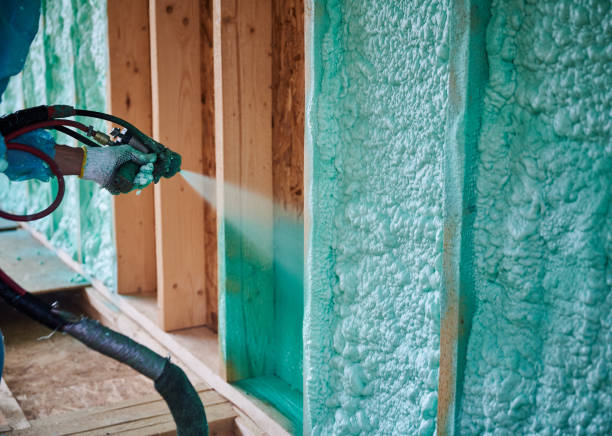A well-sealed home is like a shield against the elements, providing numerous advantages that extend beyond mere energy efficiency. Sealing your home involves addressing gaps, cracks, and insulation issues to create an airtight envelope. Whether you live in a cold climate or a warm one, the benefits of sealing your home are substantial, contributing to enhanced comfort, improved energy efficiency, and a more sustainable living environment.
1. Energy Efficiency: Sealing your home is a cornerstone of energy efficiency. By closing gaps in windows, doors, walls, and the foundation, you prevent air leaks that can significantly impact heating and cooling costs. A tightly sealed home retains conditioned air, reducing the workload on your heating, ventilation, and air conditioning (HVAC) systems.
2. Lower Energy Bills: As a direct result of improved energy efficiency, sealing your home leads to lower energy bills. When your HVAC systems operate more efficiently and are not constantly compensating for air leaks, you’ll see a noticeable reduction in your monthly energy expenses, contributing to long-term cost savings.
3. Enhanced Comfort: A well-sealed home provides consistent indoor temperatures, minimizing drafts and hot or cold spots. By eliminating uncomfortable temperature variations, you create a more enjoyable and comfortable living environment for you and your family.
4. Improved Indoor Air Quality: Sealing your home helps prevent the infiltration of outdoor pollutants, allergens, and dust. This contributes to improved indoor air quality, particularly important for individuals with respiratory issues or allergies. A sealed home reduces the entry of outdoor pollutants, fostering a healthier living space.
5. Noise Reduction: Effective sealing not only keeps air in and out but also acts as a barrier against external noise. Whether you live near a busy street or in a noisy neighborhood, a well-sealed home provides a quieter and more peaceful indoor environment.
6. Structural Integrity: Sealing gaps and cracks in the building envelope helps maintain the structural integrity of your home. It prevents moisture infiltration, which can lead to issues such as wood rot, mold growth, and structural damage over time. A well-sealed home is more resilient against the detrimental effects of weather and environmental factors.
7. Environmental Sustainability: Sealing your home aligns with sustainability goals by reducing energy consumption and minimizing your carbon footprint. When your home is energy-efficient, it contributes to broader environmental conservation efforts, promoting a greener and more sustainable lifestyle.
8. Increased Property Value: A home with energy-efficient features, including proper sealing, is often more attractive to potential buyers. Energy-conscious homebuyers recognize the long-term benefits of a well-sealed home and may be willing to pay a premium for a property with lower ongoing utility costs.
9. Long-Term Cost Savings: While sealing your home involves an initial investment, the long-term cost savings are substantial. Lower energy bills, reduced maintenance costs, and increased property value contribute to a favorable return on investment over time.
In conclusion, the benefits of sealing your home extend far beyond immediate energy savings. A well-sealed home enhances comfort, improves indoor air quality, and supports environmental sustainability. Whether you’re looking to reduce energy bills, increase property value, or create a healthier living environment, the advantages of sealing your home make it a valuable investment for homeowners seeking lasting benefits.
